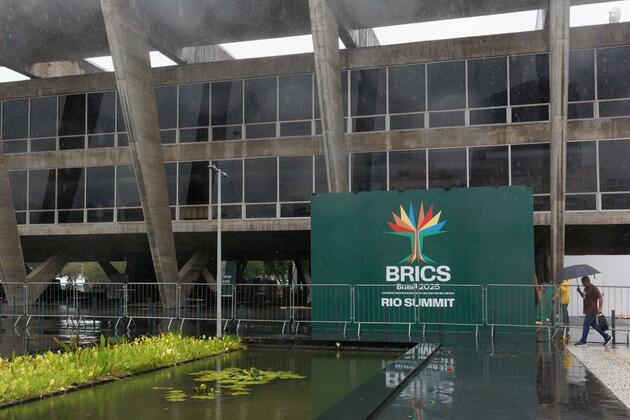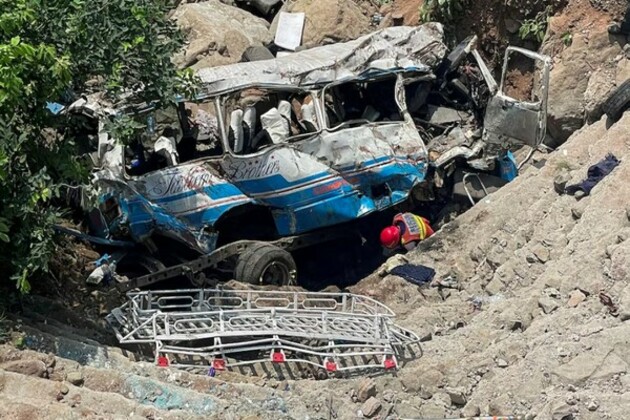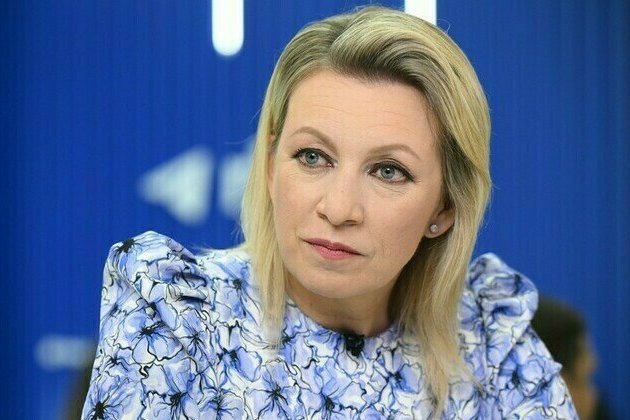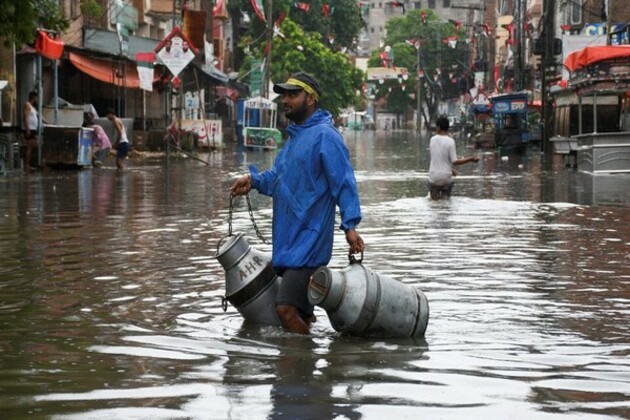Coups in west Africa have five things in common: knowing what they are is key to defending democracy
The Conversation
06 Jul 2025, 09:33 GMT+10
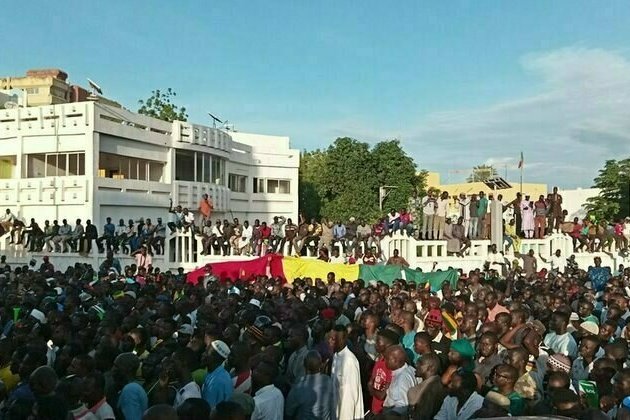
August 2025 makes it five years since Malian soldiers ousted President Ibrahim Boubacar Keta in a coup d'etat. While the event reshaped Mali's domestic politics, it also marked the beginning of a broader wave of military takeovers that swept parts of Africa between 2020 and 2023.
Soldiers have toppled governments in Niger, Burkina Faso (twice), Sudan, Chad, Guinea and Gabon.
The return of military coups shocked many observers. Once thought to be relics of the cold war, an "extinct" form of regime change, coups appeared to be making a comeback.
No new coups have taken place since Gabon's in 2023, but the ripple effects are far from over. Gabon's coup leader, Gen. Brice Oligui Nguema, formally assumed the presidency in May 2025. In doing so he broke promises that the military would step aside from politics. In Mali, the ruling junta dissolved all political parties to tighten its grip on power.
Across the affected countries, military rulers remain entrenched. Sudan, for its part, has descended into a devastating civil war following its coup in 2021.
Analysts often cite weak institutions, rising insecurity, and popular frustration with civilian governments to explain coups. While these factors play a role, they don't capture the patterns we have observed.
I have studied and written on military coups for nearly a decade, especially this coup wave.
After a close analysis of the coup cascade, I conclude that the international community must move beyond the view of coups as isolated events.
Patterns suggest that the Sahelian coups are not isolated. Coup leaders are not only seizing power, they are learning from one another how to entrench authority, sidestep international pressure and craft narratives that legitimise their rule.
To help preserve democratic rule, the international community must confront five lessons revealed by the recent military takeovers.
Contagion: Just a month after Guinea's military ousted President Alpha Conde, Sudan's army disrupted its democratic transition. Three months later, Burkina Faso's officers toppled President Roch Marc Christian Kabore amid rising insecurity.
Each case had unique triggers, but the timing suggests more than coincidence.
Potential coup leaders watch closely, not just to see if a coup succeeds but what kinds of challenges arise as the event unfolds. When coups fail and plotters face harsh consequences, others are less likely to follow.
Whether coups spread depends on the perceived risks as much as on opportunity. But when coups succeed - especially if new leaders quickly take control and avoid immediate instability - they send a signal that can encourage others to act.
Civilian support matters: Civilian support for coups is real and observed.
Since the start of Africa's recent coup wave, many commentators have highlighted the cheering crowds that often welcome soldiers, celebrating the fall of unpopular regimes. Civilian support is a common and often underestimated aspect of coup politics. It signals to potential coup plotters that military rule can win legitimacy and public backing.
This popular support also helps coup leaders strengthen their grip on power, shielding their regimes from both domestic opposition and international pressure. For example, following Niger's 2023 coup, the putschists faced international condemnation and the threat of military intervention. In response, thousands of supporters gathered in the capital, Niamey, to rally around the coup leaders.
In Mali, protesters flooded the streets in 2020 to welcome the military's ousting of President Ibrahim Boubacar Keta. In Guinea, crowds rallied behind the junta after Alpha Conde was removed in 2021. And in Burkina Faso, both 2022 coups were met with widespread approval.
International responses: The international community's response sends equally powerful signals. When those responses are weak, delayed, or inconsistent - such as the absence of meaningful sanctions, token aid suspensions, or symbolic suspensions from regional bodies - they can send the message that the illegal seizure of power carries few legitimate consequences.
International responses to recent coups have been mixed. Some, like Niger's, triggered strong initial reactions, including sanctions and threats of military intervention.
But in Chad, Mahamat Deby's 2021 takeover was effectively legitimised by key international actors, which portrayed it as a necessary step for stability following the battlefield death of his father, President Idriss Deby, at the hands of rebel forces.
In Guinea and Gabon, regional suspensions were largely symbolic, with little pressure to restore civilian rule. In Mali and Burkina Faso, transitional timelines have been extended repeatedly without much pushback.
The inconsistency signals to coup leaders that seizing power may provoke outrage, but rarely lasting consequences.
Coup leaders learn from one another: Contagion isn't limited to the moment of takeover. Coup leaders also draw lessons from how others entrench themselves afterwards. They watch to see which tactics succeed in defusing opposition and extending their grip on power.
Entrenched military rule has become the norm across recent coup countries. On average, military rulers have remained in power for nearly 1,000 days since the start of the current wave. Before this wave, military leaders had retained power on average for 22 days since the year 2000.
In Chad, Mahamat Deby secured his grip through a contested 2024 election. Gabon's Nguema followed in 2025, winning nearly 90% of the vote after constitutional changes cleared the path. In both cases, elections were used to re-brand military regimes as democratic, even as the role of the armed forces remains unchanged.
Coup governments across Mali, Burkina Faso and Niger have shifted away from western alliances and towards Russia, deepening military and economic ties. All three exited the Economic Community of West African States and formed the Alliance of Sahel States, denouncing regional pressure.
Aligning with Russia offers these regimes external support and a veneer of sovereignty, while legitimising authoritarianism as independence.
The final lesson is clear: when coups are treated as isolated rather than interconnected, it's likely that more will follow. Would-be plotters are watching how citizens react, how the world responds, and how other coup leaders consolidate power.
When the message they receive is that coups are tolerable, survivable and even rewarded, the deterrent effect weakens.
Poema Sumrow, a Baker Institute researcher, contributed to this article
 Share
Share
 Tweet
Tweet
 Share
Share
 Flip
Flip
 Email
Email
Watch latest videos
Subscribe and Follow
Get a daily dose of Kenya Star news through our daily email, its complimentary and keeps you fully up to date with world and business news as well.
News RELEASES
Publish news of your business, community or sports group, personnel appointments, major event and more by submitting a news release to Kenya Star.
More InformationAfrica
SectionAnnual BRICS summit gets underway in Brazil
The event is expected to attract some 4,000 people from 37 member-nations, partner states, and international organizations The 17th...
'Deeply concerned about his safety': Congress MP on abduction of Odisha resident by Al-Qaeda in Mali
Koraput (Odisha) [India], July 6 (ANI): Congress MP from Assam's Koraput, Saptagiri Sankar Ulaka, said that a resident of Hinjili in...
Jays aim to sweep Angels, complete perfect homestand
(Photo credit: John E. Sokolowski-Imagn Images) The Toronto Blue Jays will try to complete an undefeated seven-game homestand Sunday...
Interview: BRICS a key platform for Global South cooperation, inclusive governance -- Ethiopian scholar
BRICS stands as a symbol of unity, equality and shared progress, empowering nations seeking a stronger voice in global governance,...
Brazil: Indian Diaspora holds cultural performance on Operation Sindoor to welcome PM Modi
Rio de Janeiro [Brazil], July 6 (ANI): Prime Minister Narendra Modi witnessed unique cultural performances upon his arrival in Brazil....
Child labour numbers rise in homes where adults are jobless - South African study
Child labour is a big concern across the world. It is particularly acute in countries in the global south, where it is estimated that...
World
SectionMethionine Restriction Could Extend Lifespan, Boost Health
VILNIUS, Lithuania – A growing body of research suggests that selectively restricting a single nutrient in our diet could have profound...
6 die, 18 injured in bus-trailer collision on Pak
Muzaffargarh [Pakistan], July 6 (ANI): At least six people were killed and 18 others injured in a tragic road accident on Saturday...
Moscow outlines why Zelensky wants to meet with Putin
The Ukrainian leader seeks to portray himself as legitimate, Foreign Ministry spokeswoman Maria Zakharova has said Ukrainian leader...
Annual BRICS summit gets underway in Brazil
The event is expected to attract some 4,000 people from 37 member-nations, partner states, and international organizations The 17th...
Karachi experiences showers, other provinces in Pak to get heavy rain
Karachi [Pakistan], July 6 (ANI): Karachi experienced moderate to heavy rain across various neighborhoods on Saturday night, bringing...
Israel strikes 130 targets across Gaza in intensified anti-terror campaign
Tel Aviv [Israel], July 6 (ANI/TPS): Israeli forces struck around 130 terror targets in the Gaza Strip over the past 24 hours, as the...




